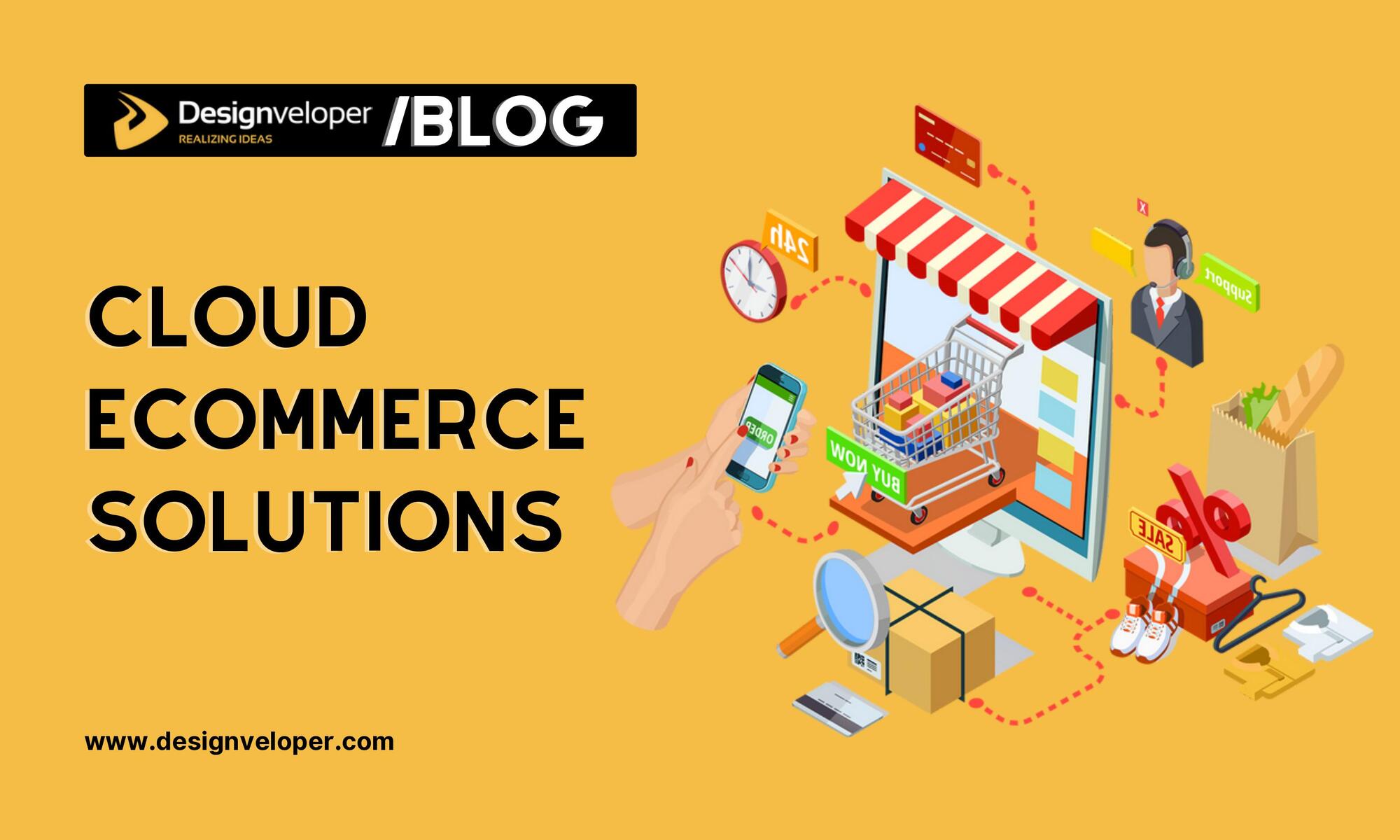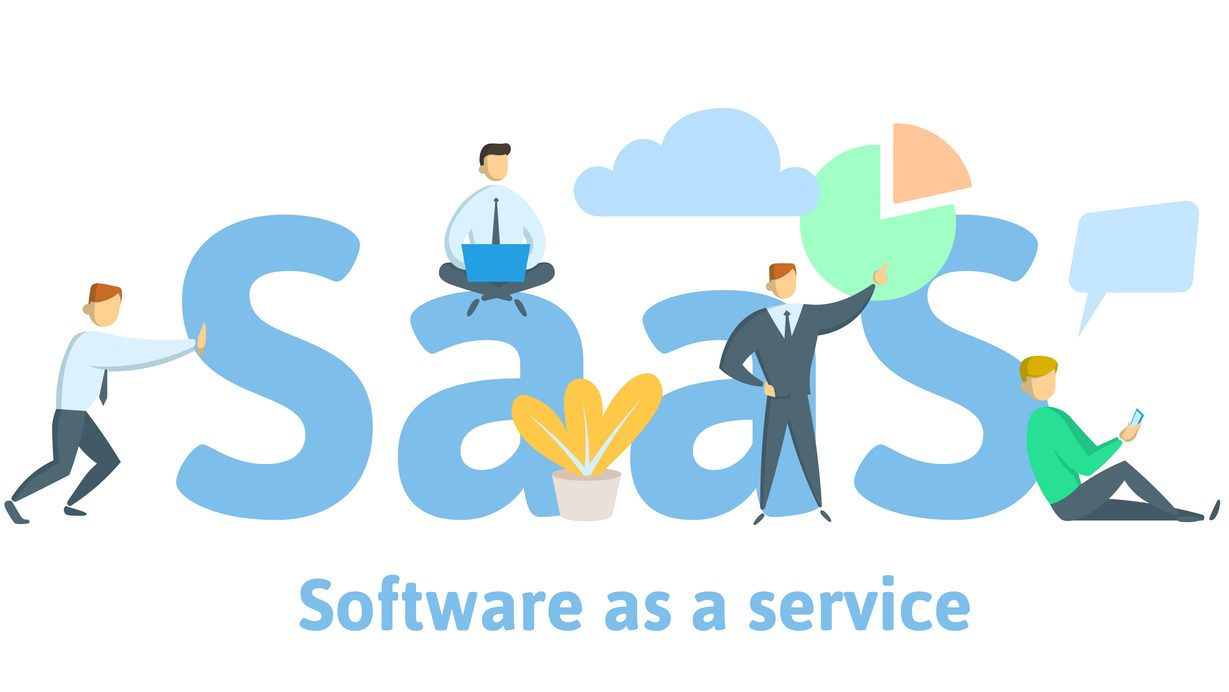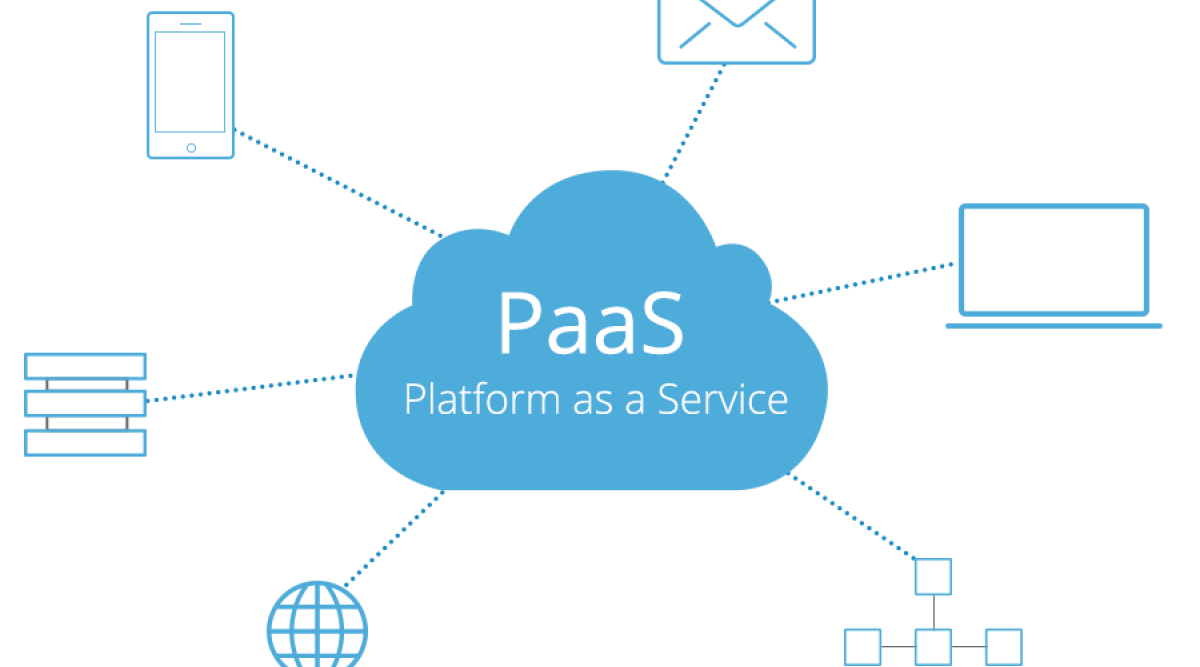What Are Cloud eCommerce Solutions?

Perhaps, most of us have heard of Google Cloud or Dropbox applications without knowing that those applications are built from Cloud E-Commerce platforms. So what is “Cloud eCommerce”, why has “Cloud eCommerce solutions” become so popular among businesses? Which feature does it excel? Let’s find out more!
What Is a Cloud eCommerce Solution?
The term “Cloud eCommerce” is essentially a term used to refer to a remote access model. You use your computer via the Internet to connect and interact with a server located very far away to use application services, storage, and data processing. That server is also a computer but has its own application and runs on very powerful hardware to store and process data that your computer is unable to perform. You will use applications on the server by executing commands via a web browser and your server will have to handle the heavy commands that you have just issued.
In recent years, we can see the popularity of cloud eCommerce solutions as it offers a range of benefits over costly and complex traditional storage. And obviously, cloud eCommerce has become the most optimal solution model on the market with the following characteristics:
1. Elasticity
For eCommerce industries, the workload is constantly changing and the seasonal spikes (Black Friday, Cyber Monday, Christmas Eve, etc …) put pressure on eCommerce hosting and capacity. The required hardware must be large enough to hold all of this information while most other times of the year will not be used.

It is this cloud that becomes more optimal in the eyes of the user as it provides a resilient solution that allows us to change the workload significantly and always respond to any spike including unpredictable outbreaks.
The other side of elasticity is business growth. When you want to scale up your business, integrate new industries and improve software, the infrastructure must be scaled up to that scale, but when there are one or some cloud eCommerce solutions, things are easier when you don’t need to worry about it, all you need to do is just sit there and relax.
2. Cost-effective
The cloud lets you avoid physical superstructures. You do not need to buy additional equipment, hire relatives, pay for maintenance, electricity, etc … maybe in the future your company will need more than that and again, cloud computing can provide all those resources and services as the business requires, customers only need to pay for the resources they use. A cloud solution may save a company over 70% of the costs associated with building static environments scaled for traffic peaks – the hardware that may only be in use a few days a year.
3. Cloud computing Solutions using dynamic computing resources
The resources will be allocated to businesses exactly what the business needs. Instead of investing or calculating the cost of your headache, just call the cloud provider and say “Sorry the old resources can’t come to the phone right now. Why? Because I need more 128GB RAM” and as fast as Sonic, the cloud will automatically search for free resources to provide you.
Sounds interesting, right?
4. Pro Protection

Cloud eCommerce solutions automatically assess risks and protect data sources so you can focus on your business. When storing data in the cloud, you do not need to worry about maintaining and monitoring your server or hiring too many IT staff to maintain the server operation.
Cloud service providers will accept the risks and commitment to customer information security is their priority. Because of this feature, you should also be aware of the risks that may still occur, nothing is absolute, choose a reliable and reputable cloud service provider for security. Secure for your information.
5. Flexible to access
If your business is a multinational company and your commercial activities are not fixed in one place, then with eCommerce cloud, you have a remote server system, strong enough and the flexibility to deliver content at the fastest speeds, wherever you are.
6. 24/7 Support
Cloud providers do not provide only unlimited geographical distance but they also have an unlimited time frame to support you. Cloud providers will provide an emergency call support and response system to prevent risks 24/7. Anywhere and anytime you need it.
But the types of cloud services will provide different models of cloud eCommerce solutions, so…
Recommended reading: How to Build an eCommerce Website Fastest in 2023
How Many Types of Cloud Ecommerce Solutions Are There?
1. Saas (Software as a Service)
This type of cloud service is quite simple and very popular. Customers will buy an infrastructure service instead of buying their own hardware.

This type of cloud has been provided by well-established brands such as Google Apps, Dropbox, Salesforce, Cisco WebEx, Concur, GoToMeeting.
Characteristics:
- Remote management
- Stored on the server, secure on data
- Accessible via the internet
- Users are not responsible for hardware or application software updates.
Advantages:
- Reduce time for installing applications, mand anaging, and upgrading software.
- Help businesses focus more on business than handling issues, sand ystem administration.
Suitable for:
- Small startups, need to run website services for quick marketing.
- Suitable for short-term projects that require collaborators to work remotely.
- Non-regular access applications such as tax software, …
- Suitable for mobile and web applications.
2. PaaS (Platform as a Service)
PaaS will provide the platform for developers to create applications and continue to develop those applications.

Characteristics:
- Built on virtualization technology, meaning that resources can easily be increased or decreased when demand changes.
- Provide a variety of services to support application development, testing, and deployment.
- Multiple users can access the same application developed.
- Integrated web services and databases.
Advantages:
- The environment supports many different languages: Node. js, Java, Ruby, C #, Go, Python, or PHP, though cloud solution provider.
- Can be easily extended.
- Flexible use for libraries and frameworks.
Suitable for:
- Tech startups are in need of a quick build and scaling system.
- Software businesses need to develop applications quickly and easily.
For example:
Google App Engine, Elastic Beanstalk – Amazon, Cloud Services – Azure, Openshift,…
Recommended reading: ECommerce Business: Definition, Models of Transactions, and eCommerce Environment
3. IaaS (Infrastructure as a Service)
This service leases your resources (RAM, CPU, …) and is scalable, but it varies according to changing needs. Instead of spending money to buy resources, you can rent an IaaS site and that will save a lot.

Provides computing infrastructure such as servers, networks, operating systems and storage, through virtualization technology. The customer is entirely the person who directly manages and controls the entire infrastructure provided.
Characteristics:
- Resources are available as a service.
- Cost varies according to usage.
- Service is highly scalable.
- Provides complete control of infrastructure for organizations.
- Dynamic and flexible based on cloud computing.
Advantages:
- Easy to enable automated deployment.
- Give customers full control of the infrastructure.
- Can purchase resources when needed.
- Highly scalable.
Suitable for:
- For a startup or a small company, IaaS is an option so you don’t have to spend time or money trying to create hardware.
- IaaS is also beneficial for large organizations that want full control over their applications and infrastructure.
- Companies have a huge need for computing power.
For example:
DigitalOcean, Linode, Compute Engine – Google, Amazon EC2, Azure Virtual Machine.
So in order to keep your information safe as well as make the most of cloud eCommerce solutions, it is important for businesses to find a “cloud” provider that has enough credit to meet all the above factors.

















































